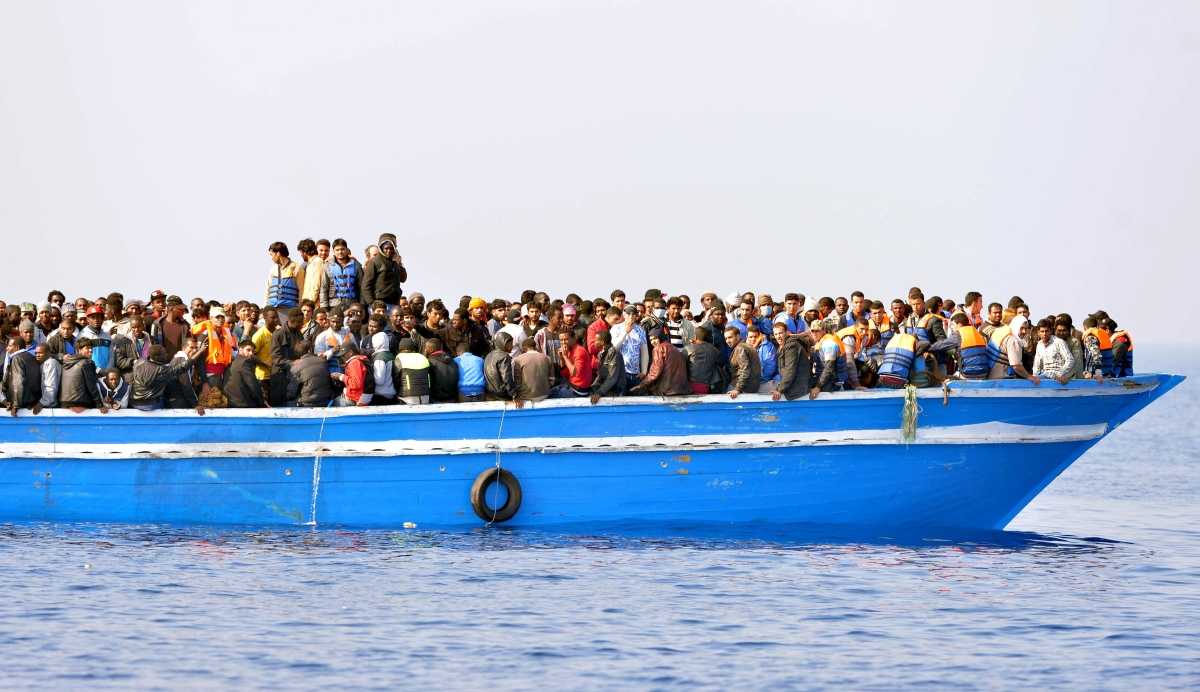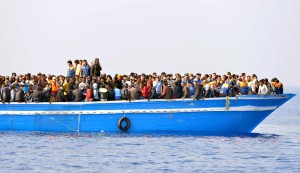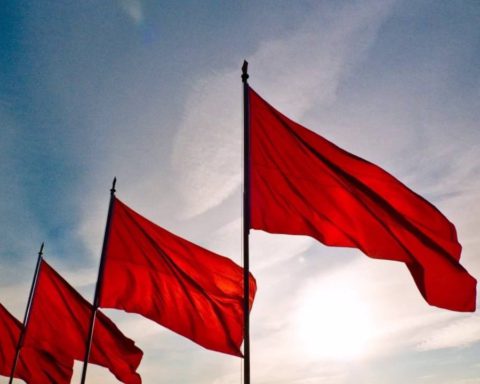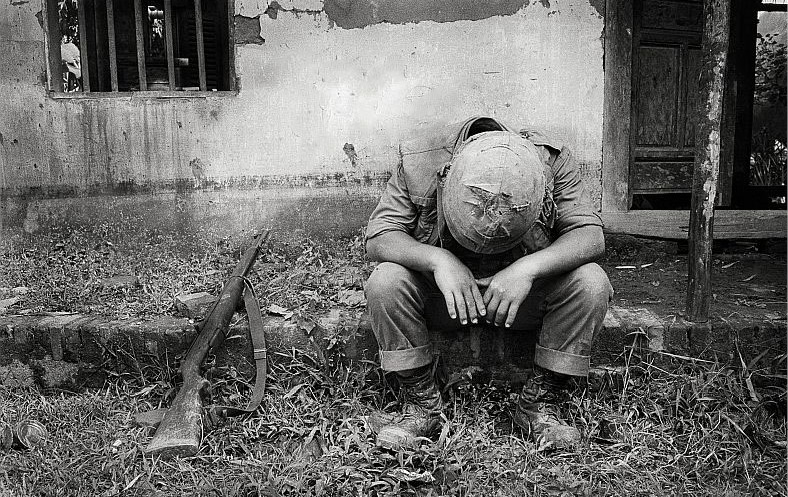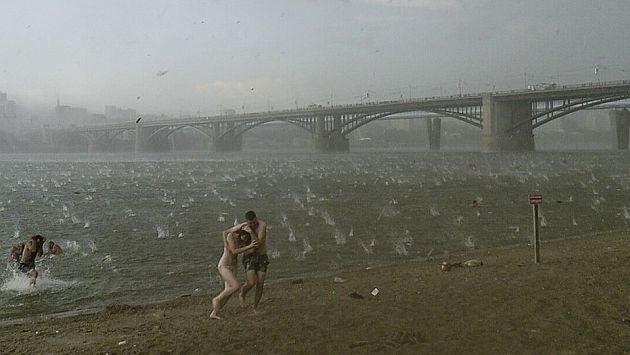Finally, that motionless little body is the end point of the historical impotence of a working class that, from Arab nationalism to religious fundamentalism, hasn’t been able to build a party that would propose a revolutionary solution.
By Eduardo Sartelli – Director of CEICS
(In El Aromo n° 86 Rumbo a la barbarie – Towards barbarism Sep./Oct. 2015)
The photograph of a dead child on a beach has shaken Europe. What was so peculiar, so special, about something that, being so recurrent, shouldn’t have attracted much attention? That it was the highest point of a crisis that keeps growing higher. It started in the ‘70s, as a profitability crisis. It had some air in the ‘80s, with the conservative reaction, the most important achievement of which was the dismantling of the “Second World”, with the fall of the pseudo-socialists regimes. It grew to levels of triumphalism in the ‘90s, with the expansion of fictitious capital. It barely managed to hide, with a new wave of financial and housing bubbles in the beginning of the XXI century, and it was hopeful, once the burst was inevitable, about the new capitalist “engine”: China. We don’t yet know where the next step will take us, but we can do a brief account of the gigantic social destruction that the capitalist crisis has produced thus far. So we’ll see that that little body rests not on a beach but on the top of a gigantic mountain of misery and death.
Conservative reaction and capitalist relocation
The crisis that begins in the late ‘60s is easy to explain, hard to measure and impossible to imagine in its entire dimension. It is explained easily: the long expansion after the Second World War was due to the combined push on the profit rate by several factors, in particular, the high rates of exploitation left by the war, the fantastic technological innovation that it produced and the enormous destruction of surplus capital. In that context, with renewed markets, new technological processes that trigger productivity and a labor force cheapened in its material components, but also in its socio-historical ones, the profit rate increases to extraordinary levels. The capitalists invest and the system grows steadily at high speed. That same investment increases the organic composition of capital (more capital, less workers) and leads to a significant decline of the profit rate after more than twenty years of expansion. The crisis begins because the fever of investments that characterized the beginning of the wave, stalls and falls. And along with it the whole system, that can only recover itself by relaunching the profit rate. As the reader can realize, saying it is easy, doing it is not: it implies a new class struggle, like the one needed to get out of the crisis in the ‘30s (two world wars, nazism, fascism, etc.).
This crisis is different to the previous ones in the way that it is processed. From each of this crisis, the system can get out and relaunch itself, or fall and be replaced by another. Partially, the Russian Revolution is inscribed in the beginning of the process of the crisis in the ‘30s, as well as, at the other end of the wave, the Chinese Revolution. This last crisis also begins with a defeat: Vietnam. It doesn’t have, however, the proper magnitude and, also, it is accompanied by the defeat of every revolutionary expression in the capitalist periphery, particularly in Latin America, the south of Europe and Africa. Therefore the bourgeoisie can be quickly recomposed in political terms, through Reagan and Thatcher, who confronted a proletariat numbed by decades of reformism. It can’t, however, face great class struggles: in the ‘30s, a vast part of the petty bourgeois masses (“middle class” and “peasantry”) could be used as a battering ram against the proletariat. Now, after three decades of social polarization, the proletarian mass couldn’t be effectively confronted if it was forced to unite against a violent large-scale attack. So the first strategy is erosion. The permanent erosion of positions, which slowly unfolds a process of growing degradation within the working class of the central countries. A useful element to smooth the process is immigration, especially clandestine, which creates a new proletarian sector competing with the “traditional” one.
The other substantial element is technological innovation, which allows, through robotization, to distribute productive attributes and to cheapen the labor force, at the same time as it creates a mass of unemployed workers that join the migrant labor force in pressing down wages. But what has stimulated the most this process of degradation is the relocation of capital in countries with a huge amount of cheap labor force, hidden under the form of latent rural unemployment. The crisis, while reconfiguring the working class of the central countries, creates a new “prosperous” periphery: Mexico, Brazil, China, India, Vietnam, etc. There, political repression and abundant unemployment create the paradise of absolute surplus value that characterized the beginnings of the industrial revolution.
With an exacerbated competition because of the crisis, the capitalists’ blocs seek to increase their share in the world market. So it is reproduced, though under less open forms, a growing inter-imperialist dispute. It’s not a scenario like 1914, where each one aspires for domination, in a context of relatively even forces. Today is clear that EEUU can’t be challenged by anyone, but also that its economic power is increasingly less supportive of a declining military power. There isn’t an open confrontation, but that’s not enough to hide the fact that, beneath the appearance of “gentlemen’s agreements”, wages a war over the control of key areas, such as the Middle East and its oil. EEUU, Europe, Russia and China are involved in a process that began with the war between Iraq and Iran and ended with the fall of Saddam Hussein; a process through which Yankee imperialism guaranteed for itself, with a pyrrhic victory, a dominant presence there, where it remains entangled. After two decades of permanent intervention, the outcome of the Yankee policy was the destruction of two states (Afghanistan and Iraq) and the weakening of two others (Turkey and Pakistan), along with the crisis introduced in the relation with another two countries (Israel and Saudi Arabia). In those troubled waters is where, for a decade at least, Chinese and Russians are trying to fish. This already complex scenario exploded because of one of the consequences of the capitalist crisis in the periphery: the Arab spring.
The end of a national experience and the state implosion
The whole arch from Syria to Morocco experienced, after the Second World War, a process of constitution/consolidation of national states, dominated by the idea of Pan-Arabism. National heroes that once flirted with socialism and even gave name to versions of third world nationalism (Nasserism, for example), managed to build, especially through oil, unstable but long-lasting political coalitions, where the armed forces had an inevitable role, given the weakness of the local bourgeoisies and the necessarily repressive character towards the masses. Their position in the Cold War assured, also, certain geopolitical importance. Fifty years later, the crisis finds those experiences in a state of exhaustion: societies that expanded stimulated by one rent (oil), which finds a limit in its capacity to compensate the relative backwardness; that suffer harshly the expansion of another one (agricultural) in the form of a rising price of imported food; and that finally explode when Europe itself, the drainage of the growing mass of unemployment, enters into crisis.
The revolt of the masses in that huge arch that we are talking about, resulted not only in the fall of entire political regimes, but also in a process of state weakening that, in some cases, reaches a decomposition: Syria. The process of receding State power in the Middle East, provoked by imperialism, is therefore added to the other one, which comes from African confines. In this scenario appears ISIS, to crown the generalized state decomposition.
Imperialism in the swamp of the Middle East
This generalized decomposition puts imperialism as much as the working class in a swamp. The state destruction operated by Yankee imperialism liberated enormous masses of politico-military personnel to adventure, from Al Qaida to ISIS, passing through the remains of the Iraqi army faithful to Saddam. This decomposed and dispersed state remains, entered in the inter-bourgeois struggles of the Middle East, receiving financing to operate as mercenary armies, from the four imperialisms that try to control the area, as well as from the most powerful local bourgeoisies, from the Israeli to the Saudi. The expansion of the receding State power, provoked by the Syrian crisis, increased the possibilities of adventure and the autonomy of these groups, that nobody can (or wants to) stop.
The Arab spring liberates masses that become, sooner or later, a political base for those pseudo-state endeavors, like ISIS, generating a complete chaos. ISIS expands with a basically predatory policy, which does not and cannot build a State that stabilizes the social relations. It is more an expression of the general decomposition than of its overcoming. The Turks cannot put a stop to it, trapped as they are between their internal crisis and the Kurdish problem. The Kurds don’t have the means, despite all the American resources they receive. Israel cannot intercede, risking the unification of everyone against itself. Syria doesn’t exist anymore. Iraq and Afghanistan don’t either. Saudi Arabia is neither interested nor capable, because of its class composition, of stablishing relations with the masses of the Middle East. It’s understandable why the EEUU seeks an alliance with Iran, the only state left in the region and that has relations with the masses of the region.
Socialism or Barbarism
The masses of the Middle East and the north of Africa up till now haven’t done more than to serve as a base of the process of state decomposition. The working class of that arch we have mapped out hasn’t been able to organize a policy of its own, independent of the bourgeoisie. The result is simple: it’s all about siding with one of the infinite factions that are endlessly disputing the hegemony in the region, or, plainly, fleeing. That’s why the last wave of fugitives is originated in the part of the region where everything is more acutely expressed: Syria. Finally, that motionless little body is the end point of the historical impotence of a working class that, from Arab nationalism to religious fundamentalism, hasn’t been able to build a party that would propose a revolutionary solution.
The consequence was mapped out a long time ago by Rosa Luxemburg, in a disjunctive that has been interpreted many times as a romantic exaggeration. However, it is as real as what we are seeing every day: in the absence of a socialist outcome, the migrants’ crisis is the expression of barbarism that arises when capitalism declines. Anyone who believes that it is only limited to the Middle East, is wrong.

